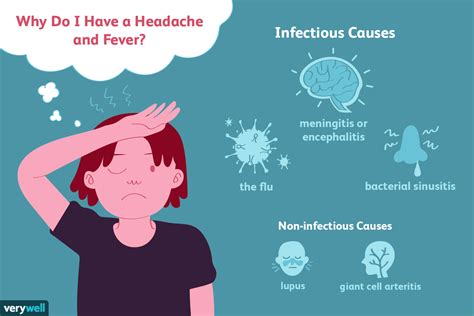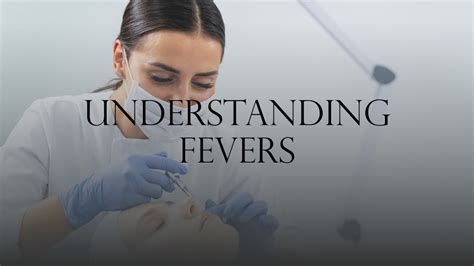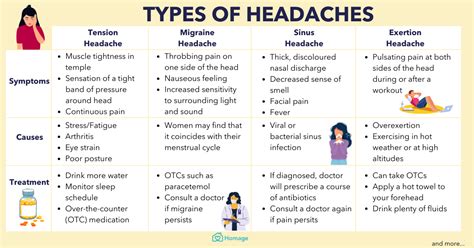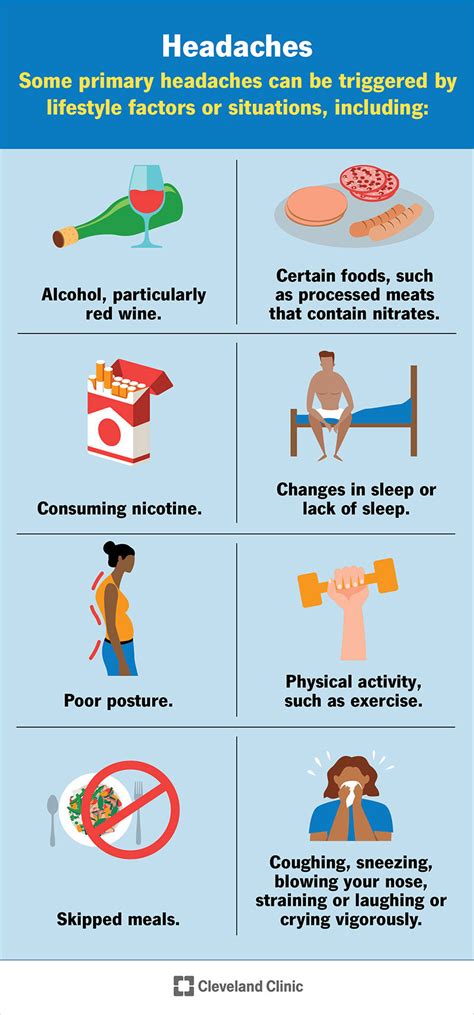Intro
Headaches and fevers are two of the most common health complaints that affect people of all ages. While they can be uncomfortable and debilitating, it's essential to understand the causes, symptoms, and treatment options available to manage these conditions effectively. In this article, we'll delve into the world of headaches and fevers, exploring their importance, types, and ways to alleviate them.
Headaches and fevers are often interconnected, as a fever can trigger a headache, and vice versa. A headache is a pain or discomfort in the head, scalp, or neck, while a fever is an elevated body temperature, usually above 98.6°F (37°C). Both conditions can be caused by various factors, including infections, allergies, stress, and certain medical conditions. Understanding the underlying causes of headaches and fevers is crucial to finding the right treatment and preventing future episodes.
The importance of addressing headaches and fevers cannot be overstated. If left untreated, these conditions can lead to more severe complications, such as dehydration, seizures, or even brain damage. Furthermore, chronic headaches and fevers can significantly impact a person's quality of life, affecting their daily activities, relationships, and overall well-being. By seeking medical attention and adopting healthy habits, individuals can reduce the frequency and severity of headaches and fevers, improving their overall health and well-being.
Understanding Headaches

Headaches are a common complaint, with over 90% of people experiencing them at some point in their lives. There are several types of headaches, including tension headaches, migraines, cluster headaches, and sinus headaches. Tension headaches are the most common type, characterized by a dull, aching pain on both sides of the head. Migraines, on the other hand, are more severe, often accompanied by nausea, vomiting, and sensitivity to light and sound.
Causes of Headaches
The causes of headaches are diverse, ranging from stress and anxiety to medical conditions like sinusitis, meningitis, or encephalitis. Other factors, such as poor posture, eye strain, and certain foods, can also trigger headaches. Understanding the underlying causes of headaches is essential to developing effective treatment strategies.Understanding Fevers

Fevers are a natural response to infection or inflammation, as the body attempts to fight off invading organisms. There are different types of fevers, including low-grade fevers, high-grade fevers, and recurrent fevers. Low-grade fevers are typically mild, while high-grade fevers can be more severe, requiring medical attention.
Causes of Fevers
The causes of fevers are numerous, including bacterial, viral, or fungal infections, as well as autoimmune disorders, cancers, or certain medications. In some cases, fevers can be a symptom of a more serious underlying condition, such as sepsis, meningitis, or pneumonia. Identifying the underlying cause of a fever is crucial to providing effective treatment and preventing complications.Treatment Options for Headaches and Fevers

Treatment options for headaches and fevers vary depending on the underlying cause and severity of the condition. Over-the-counter medications, such as acetaminophen or ibuprofen, can help alleviate mild headaches and fevers. However, more severe cases may require prescription medications, such as antibiotics or antiviral medications.
Home Remedies for Headaches and Fevers
In addition to medical treatment, there are several home remedies that can help alleviate headaches and fevers. These include: * Staying hydrated by drinking plenty of fluids * Resting in a cool, quiet environment * Applying a cold or warm compress to the forehead or neck * Practicing relaxation techniques, such as deep breathing or meditation * Avoiding triggers, such as certain foods or stressorsPrevention Strategies for Headaches and Fevers

Preventing headaches and fevers requires a comprehensive approach, incorporating lifestyle changes, stress management, and regular health check-ups. Some strategies to prevent headaches and fevers include:
- Maintaining a healthy diet and staying hydrated
- Engaging in regular exercise and stress-reducing activities
- Getting enough sleep and practicing good sleep hygiene
- Avoiding triggers, such as certain foods or environmental factors
- Staying up-to-date on vaccinations and preventive care
Importance of Seeking Medical Attention
While many headaches and fevers can be managed at home, there are situations where medical attention is necessary. If you experience severe headaches or fevers, or if you notice any of the following symptoms, seek medical help immediately: * Severe headache or fever that lasts for an extended period * Confusion, disorientation, or difficulty speaking * Seizures, convulsions, or loss of consciousness * Difficulty breathing or shortness of breath * Chest pain or rapid heartbeatConclusion and Final Thoughts

In conclusion, headaches and fevers are common health complaints that require attention and care. By understanding the causes, symptoms, and treatment options, individuals can take proactive steps to manage these conditions and prevent future episodes. Remember to seek medical attention if you experience severe or persistent headaches or fevers, and don't hesitate to reach out to a healthcare professional for guidance and support.
We invite you to share your thoughts and experiences with headaches and fevers in the comments below. Have you found any effective remedies or strategies for managing these conditions? What questions or concerns do you have about headaches and fevers? Let's start a conversation and work together to promote better health and well-being.
What are the most common causes of headaches?
+The most common causes of headaches include stress, tension, and migraine. Other factors, such as poor posture, eye strain, and certain foods, can also trigger headaches.
How can I prevent fevers?
+To prevent fevers, practice good hygiene, such as washing your hands regularly, and stay up-to-date on vaccinations. Avoid close contact with people who are sick, and get plenty of rest to help your body fight off infections.
What are the symptoms of a severe headache or fever?
+Symptoms of a severe headache or fever include confusion, disorientation, difficulty speaking, seizures, convulsions, or loss of consciousness. If you experience any of these symptoms, seek medical attention immediately.
